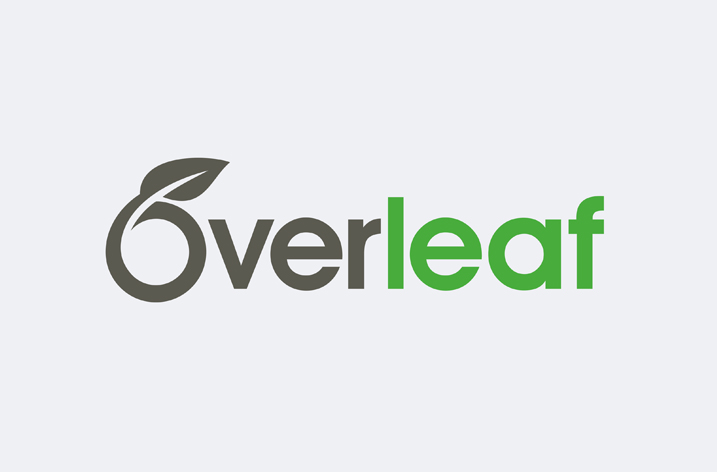
Overleaf has updated its popular collaborative writing and publishing tool to offer enhanced collaboration and editing features. Bringing together the best features of both the original Overleaf and ShareLaTeX tools into a single cloud-based platform, the new Overleaf has been designed to enable students and researchers at academic institutions, industrial laboratories, technology companies and publishers to benefit from a powerful centralized documentation process.
“Overleaf is now firmly established as a leading tool in both research and education, serving a community of over 2.9 million users worldwide, from high school students through to experienced researchers and writers. Launching this new platform just over a year since Overleaf and ShareLaTeX joined forces is a testament to the immense work of the combined team, as well as to the valuable feedback on the beta version kindly shared by our users,” said John Hammersley, co-founder and CEO of Overleaf. “And with over 200,000 people using the new platform straight away, it’s certainly been a busy September!”
“Overleaf is now firmly established as a leading tool in both research and education, serving a community of over 2.9 million users worldwide, from high school students through to experienced researchers and writers. Launching this new platform just over a year since Overleaf and ShareLaTeX joined forces is a testament to the immense work of the combined team, as well as to the valuable feedback on the beta version kindly shared by our users,” said John Hammersley, co-founder and CEO of Overleaf. “And with over 200,000 people using the new platform straight away, it’s certainly been a busy September!”
As part of a philosophy of “ship early, ship often”, Overleaf introduced a beta version of the new Overleaf in May 2018. During the summer, a wealth of helpful feedback on the new platform’s functionality was provided by users, which has driven further development leading up to this month’s launch.
Addressing popular demand, the new Overleaf platform has been developed to offer a wide range of capabilities to support authors working both online and offline. Some of the updated platform features include:
Addressing popular demand, the new Overleaf platform has been developed to offer a wide range of capabilities to support authors working both online and offline. Some of the updated platform features include:
- Real-time track changes and commenting – simplifying review, acceptance or rejection of text edits for faster and easier collaborative editing.
- Private invitation, link sharing and chat functionality – facilitating new and more productive collaborations.
- Auto-compiling and real-time preview – updating the PDF view so collaborators can focus on their writing.
- Complementary Rich Text and LaTeX modes – flexing to a user’s preference for editing projects with/without working in the code.
- Ability to import and sync external files (e.g. datasets, bibliographies) – integrating with resources from other projects or external sources.
- Direct submission to journals and repositories – saving time and effort when submitting manuscripts.
- Advanced reference search – facilitating simple search by author name, title, publisher, year or keyword for effortless and fast insertion of the correct citations.
- Automatic two-way Dropbox/Github sync – supporting seamless transition between working offline to working online with other collaborators.
Key to Overleaf’s success is its ease-of-use for users, as highlighted by Professor James Friend, Medically Advanced Devices Lab, University of California, San Diego: “I am really grateful for Overleaf. It has enabled a slew of research and teaching development in my work that would have been annoyingly difficult before. Even people who don’t know LaTeX are participating with me on research proposals.”
Inês Mendes, a microbioinformatics PhD student, tweeted, “I’ve been using Overleaf for about a week now and I have to say that I’m a fan! I never gravitated towards LaTeX before but Overleaf makes it so easy to work with. I highly recommend it!”
Inês Mendes, a microbioinformatics PhD student, tweeted, “I’ve been using Overleaf for about a week now and I have to say that I’m a fan! I never gravitated towards LaTeX before but Overleaf makes it so easy to work with. I highly recommend it!”
Overleaf is also helping journals to save time when publishing manuscripts. Ruth Isaacson, Managing Editor, GSA Journals, explained, “Overleaf decreased the amount of questions we receive and the amount of processing time required from LaTeX users—with Word users we still have to answer a lot of questions, and it takes a lot more of the editorial staff time.”
Similar benefits have been enjoyed by universities when processing student thesis submissions. At Purdue University, where a growing number (35%) of all STEM students now use the Purdue thesis template on Overleaf, workload and review times decreased in cases where students used Overleaf to write a thesis – falling from 5 or more graduate staff/student meetings per thesis to approximately 2–3 meetings per thesis. It is estimated that this removes the need for approximately a thousand meetings each year at this single institution.
“Doing great research has always been about an exchange of ideas: Communication and collaboration are at the centre of today‘s best research,” said Daniel Hook, CEO, Digital Science. “The new Overleaf removes yet more barriers to communication and collaboration, taking us a step closer to frictionless research.”
By the end of the year, the new platform will enable direct Git access to projects, Zotero bibliography imports and additional publisher submission links, as well as an upgrade to Overleaf’s on-premise offering to include the new platform features.
To learn more about Overleaf, please visit https://www.overleaf.com



























